Disabled access at Wales' tourist spots 'limit freedom'
- Published
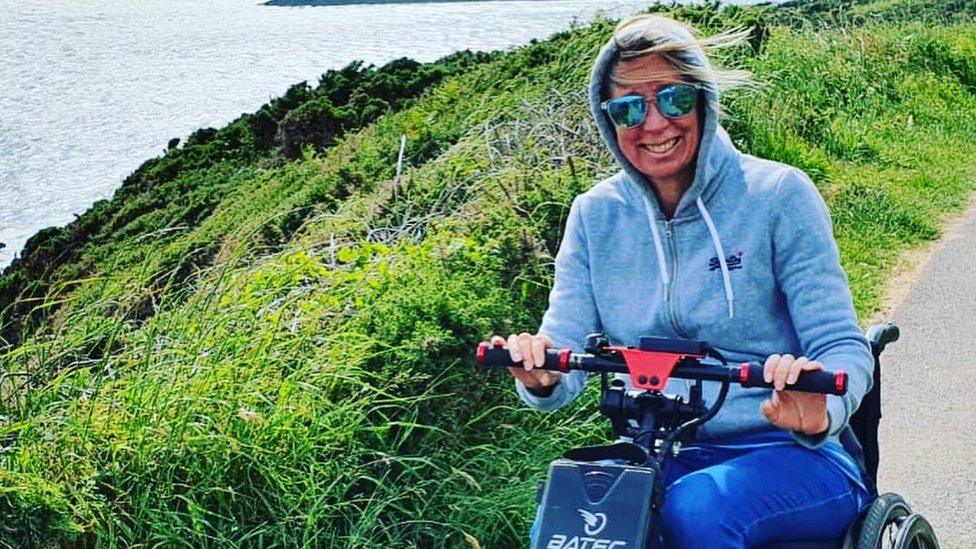
Amanda Harris is using a wheelchair, trike, and crutches to navigate the path
A lack of information about disabled access at some of Wales' tourism destinations is a "restriction on freedom", says a campaign group.
Disability Wales said some locations were seen as no-go areas for wheelchair users and people with mobility issues.
The problem has been highlighted by one partially paralysed woman, who is attempting to navigate the Wales Coastal Path.
Amanda Harris has started working with path teams to identify improvements.
The 47-year-old was badly injured in a cycling accident seven years ago.
She has become determined to complete the 870-mile (1,400km) coastal challenge, using a wheelchair, trike, and crutches when necessary.
"A few years ago, after my injury I thought perhaps I wouldn't be able to get out and explore these places," said Ms Harris, who lives in Rhondda Cynon Taf.
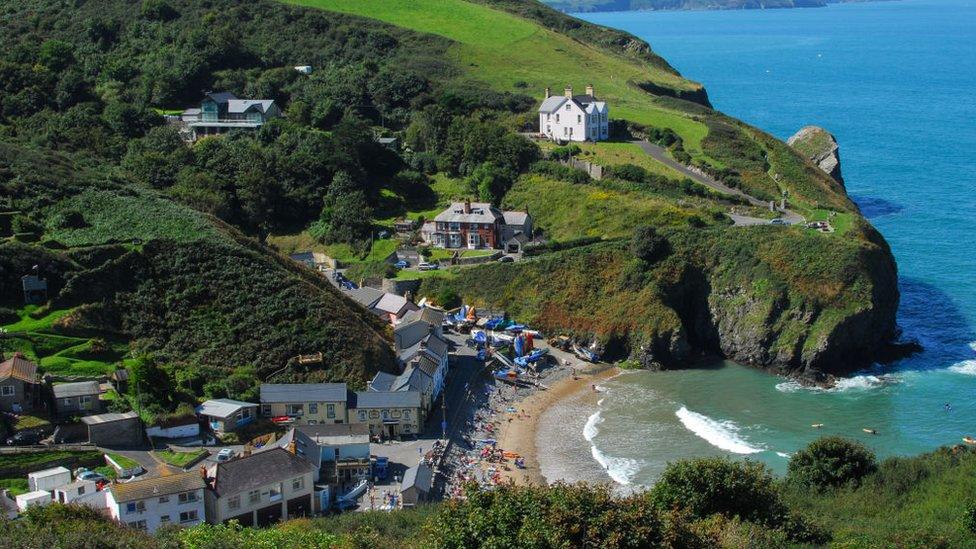
A view over the beach at Llangrannog, Ceredigion, from the Wales Coast Path
Her injury means she can only walk for short distances and she uses a wheelchair.
"It is all about improving information. There is a lack of information at the moment," she said.
"I've been relying on people to tell me what's accessible and what's not.
"And that's quite hard because I don't know if it's accessible for me.
"Every mobility problem is different, so what someone sees is accessible might not be to me.
"So, it's about getting that information out there so people can see what the terrain is like and make a decision for themselves."
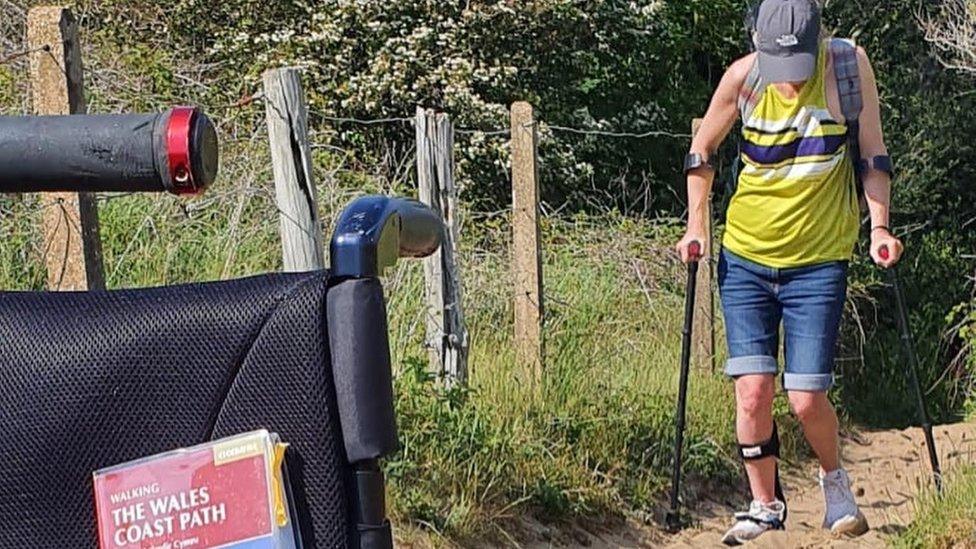
Amanda Harris has completed 50 miles so far on the Wales Coastal Path
Miranda Evans, policy and programmes manager at Disability Wales, said the issue "takes away disabled people's freedom".
"There needs to be a solution that doesn't restrict disabled people's access, because it also affects parents, carers and other family members," she said.
"On certain beauty spots, and along the coastal path, disabled people might have to turn around and go home because they can't progress on their routes.
"It destroys the experience and knocks people's confidence, and they're not likely to venture that far afield again because it's very restrictive."
The campaign group said it wanted better information online "at our fingertips".
Tricia Cottnam is the officer for the south Wales section of the coastal path which covers the route between Gower in the west and Chepstow in the east.
"What we are trying to do is get as many people as possible to use the path," she said.
"There are going to be limitations because of its very nature."
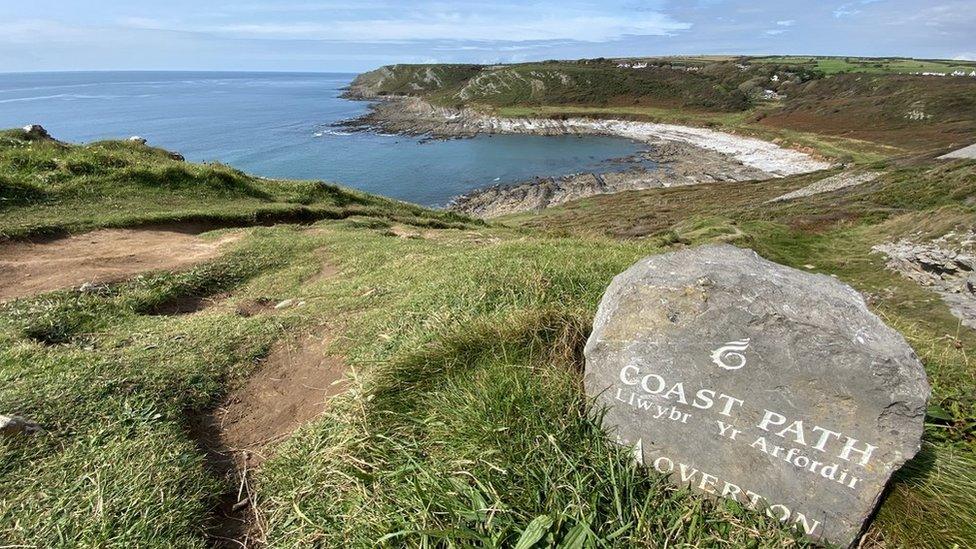
Part of the Wales Coast Path at Overton on the Gower Peninsula
Opened in 2012, the path became the first in the world to stretch the length of entire nation's coast from the Dee estuary in Flintshire, to the Severn estuary in Monmouthshire.
"You will come across rocky surfaces on cliffs, steep gradients and sand dunes but that's the nature and the beauty of the coast path," said Ms Cottnam.
"But there are small changes we can make, where we can explain about the gradients, explain about the type of surface there might be, what type of gates or stiles are on parts of the path, so people can decide whether to make that journey or not.
"And it's all about description and not prescription. It can't be one size fits all. We must be flexible."
For Ms Harris, a former patient at Cardiff's Rookwood Hospital, the challenge of the path is proving harder than she expected.
She has completed 50 miles so far (80km), and has been raising money for Horatio's Garden, which creates gardens in NHS spinal injury centres, and the Rookwood Spur charity.
The money will provide a tranquil space for spinal injury patients at Llandough Hospital in the Vale of Glamorgan, which is where the new Welsh Spinal Cord Rehabilitation Centre is being located, to replace facilities at the Rookwood site.
"There's already areas which I think could be improved such as access alongside stiles and dropped curbs in some places, and I've already fed that information back to Wales Coast Path," said Ms Harris.
"I know certain areas in the Gower, Pembrokeshire, Llŷn Peninsula, aren't going to be accessible for me but I have a team of helpers who will do these parts I can't do.
"It's going to be a great journey.
"I'm loving that I'm finding places that are accessible and getting that information out there and improving the situation for a lot of people."


- Published15 July 2021
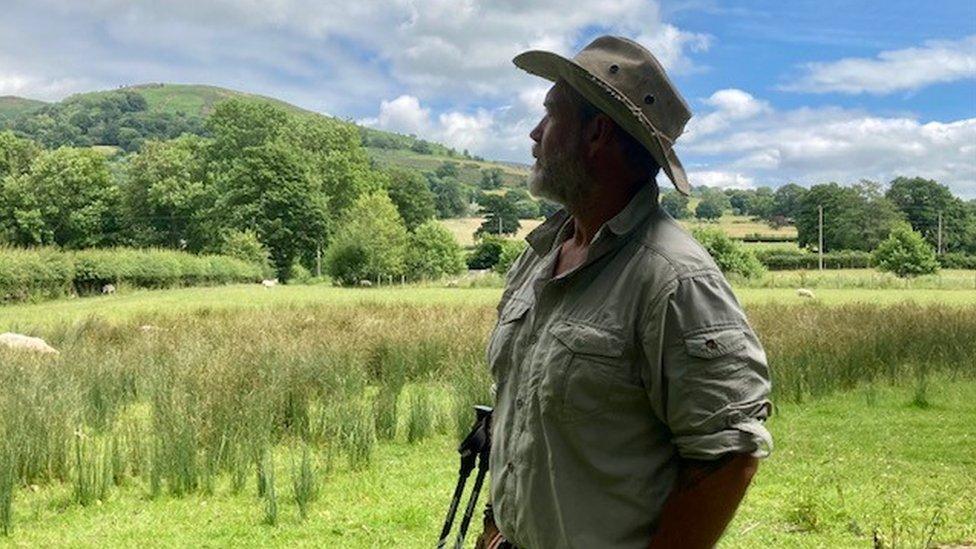
- Published11 August 2020
